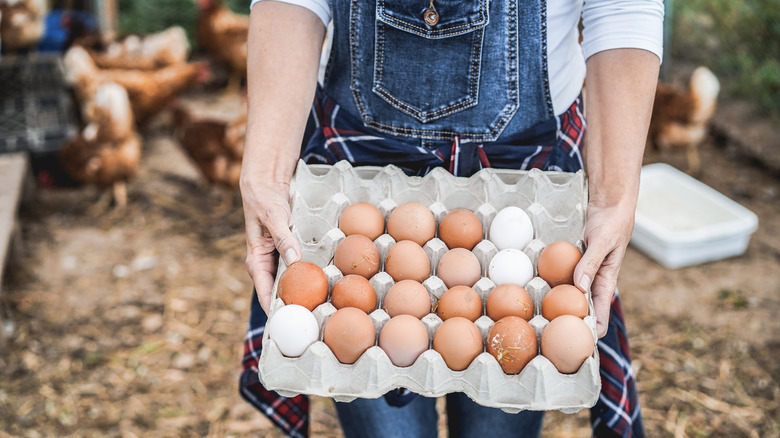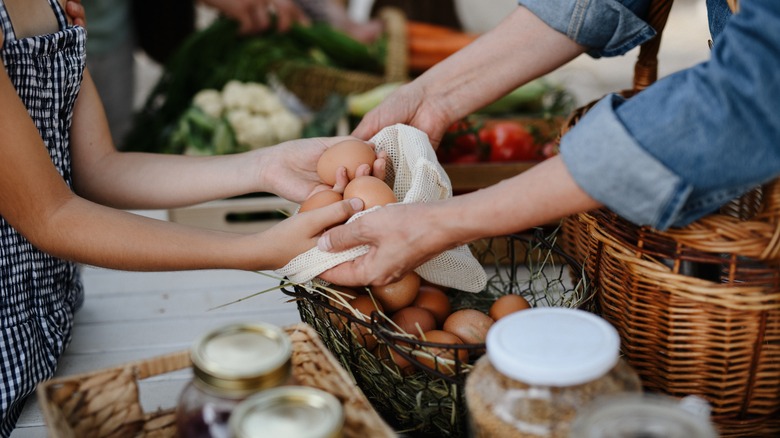Ditch Your Grocery Store For The Farmers Market On National Egg Day
National Egg Day is coming up on June 3, and what better way to celebrate than making your favorite easy deviled eggs or traditional eggs Benedict? Thankfully, egg prices dropped by 11% in April after they had climbed higher than ever over the past few years, but it's always a good idea to buy your food where you can get the most bang for your buck. And when it comes to picking up your eggs next month, the best place to get them may be the farmers market.
If you're looking to save some dough, a carton can sometimes be cheaper at the farmers market than in grocery stores — for example, a farmers market in Michigan sells two cartons of cage-free eggs for $6. While supermarket prices can drastically increase or decrease based on market drivers, egg suppliers at the farmers market can set their own prices, so they're more likely to remain steady in the face of inflation.
Plus, you're more likely to get a high-quality batch when buying from local vendors and farms. This can mean that your eggs are fresher and the hens are raised under more humane conditions — not to mention, you're supporting a local farm instead of a bigger corporation. And perhaps the biggest benefit of all? Because of all of that extra TLC, your eggs may even taste better than grocery store versions.
Farmers markets are an egg-cellent choice
Not only can they taste better, but eggs from the farmers market may actually be more nutritious than the ones found at major grocery stores. A study from Mother Earth News found that eggs raised on a pasture may contain ⅓ less cholesterol and ¼ less saturated fat than typical eggs sold in supermarkets. In addition, the former may boast twice as many Omega-3 fatty acids, three times as much vitamin E, and seven times as much beta carotene as the latter. The study credits the nutritional increase in part to the pasture-raised hens' diet, which may include more seeds, greens, and insects. In contrast, caged chickens are usually fed cheaper, less nutrient-rich options like corn or soy.
Unsurprisingly, local farms may also give their hens a better quality of life. According to the United Egg Producers, only 34.1% of laying hens were living the cage-free life by the end of 2022. That means that over 205 million were still spending their lives in cages — where, typically, up to eight hens are crammed together in an enclosure with less than half a square foot per hen.
So when you're craving scrambled eggs on National Egg Day or any other day of the year, buying from the farmers market may be a cost-effective way to help support more humanely raised chickens.

